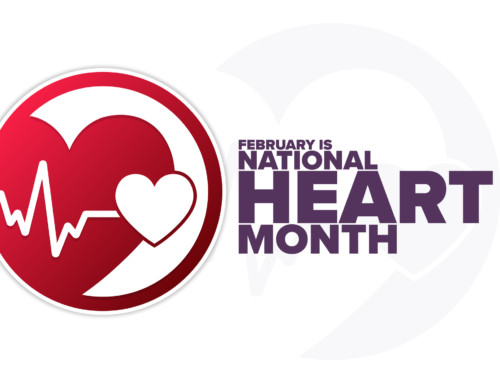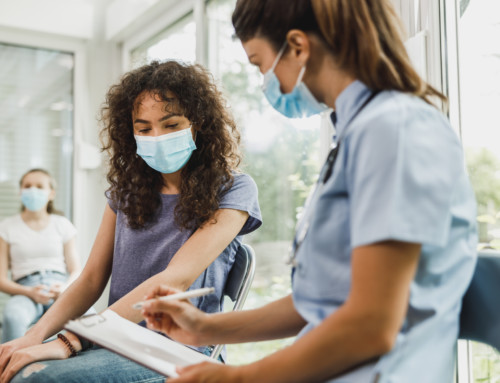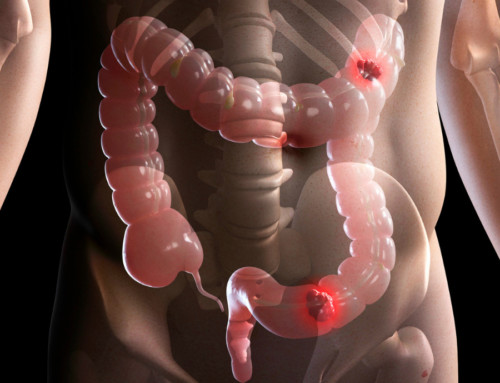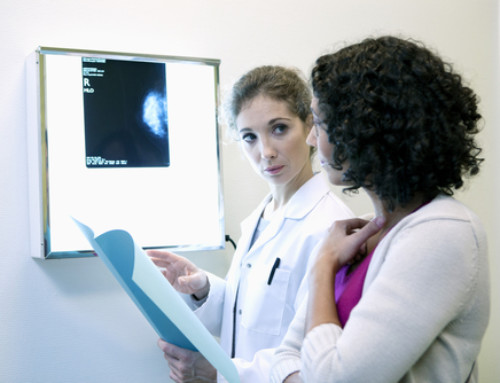 Few cases of breast cancer are actually caused by a hereditary link to the disease, which can make early detection somewhat evasive. After all, if your genes can’t alert you to an increased risk of disease, what can?
Few cases of breast cancer are actually caused by a hereditary link to the disease, which can make early detection somewhat evasive. After all, if your genes can’t alert you to an increased risk of disease, what can?
Historically, doctors recommended that women do a monthly self-examination to catch lumps and other changes to the breast early on. However, as with many things in healthcare, guidelines are changing as we discover new information about what works and what doesn’t.
Doctors don’t always recommend regular self-exams anymore. As it turns out, sometimes they create more issues than they solve. Read on to find out why some doctors are changing the way they think about self-examinations and how you can take proper care of your breasts.
A Change in Prescription for Monthly Self-Exams
In theory, performing your own breast exam should give you an early heads-up that something is amiss. If you have long lived by this belief and practice, you’re not alone. For years, doctors and patients alike thought that self-exams gave women the best chance of detecting lumps and preventing the spread of cancer.
Yet in more recent years, multiple reports — including one from the U.S. Preventive Services Task Force — have pointed to a different reality.
It turns out women who do monthly breast exams at home do not have a higher breast cancer survival rate than women who don’t do their own exams. In fact, doing a self-exam is actually associated with its own unique problems.
Women who do monthly self-exams have higher rates of:
- Unnecessary procedures. Lumps found during a self-exam may lead to biopsies or radiographic mammograms. Women who do self-exams end up with more potentially invasive procedures, some of which pose a risk of infection or bleeding.
- Anxiety around health. Women who are checking their breasts every month may stress out over the smallest perception of a lump or slight tenderness. The Canadian Task Force on Preventive Health Care even suggests that monthly breast exams could lead to higher rates of depression and anxiety in women.
- Misunderstanding about the benefits of self-exams. On the other end of the spectrum from anxiety is blind confidence. Women who become too confident in their self-exams could forgo a professional assessment and inadvertently put themselves at risk. Because they don’t feel anything “weird” during their self-exam, they assume they’re fine, when in fact they may have cancer that a mammogram would catch.
Knowing Your Breasts Inside and Out
The new recommendation for breast cancer prevention is general breast awareness. In other words: Get to know your breasts. You should be familiar with everything from whether one breast is larger than the other to what they feel like throughout the month, as your hormones fluctuate.
Instead of conducting an at-home exam like clockwork every month, start to attune yourself to when your breasts are normally sore, what your nipples look and feel like, and how your breast tissue feels to the touch.
When to See Your Doctor
In addition to scheduling mammograms and screenings as recommended by your doctor, you should make an appointment to come in if you notice the following in regards to your breasts:
- A hard lump under your arm
- Unusual soreness
- Nipple discharge
- Redness, rash, warmth, or incessant itching
- Change in nipple shape
- Fullness or swelling in one area
At the end of the day, your doctor can help you determine if you have cause for concern. Getting your practitioner’s clinical input on any changes or observations about your breasts can help you to establish what is “normal” for your body.
Monthly breast exams were always recommended with the best of intentions, but now we know they don’t actually improve the mortality rate of women. Rather than doing a monthly exam, you are better served by being aware of general changes and keeping your eyes peeled for certain red flags.
When in doubt, a consult with your physician is always the best option. Remember that changes to the breast can be from a lot of things, not just cancer — so while diligence is recommended, panic is usually not warranted.
If you have any questions or concerns about breast health or your risk of breast cancer, visit your Tri-City Medical provider today. If you’d like to schedule a mammogram screening, you can do so here.





